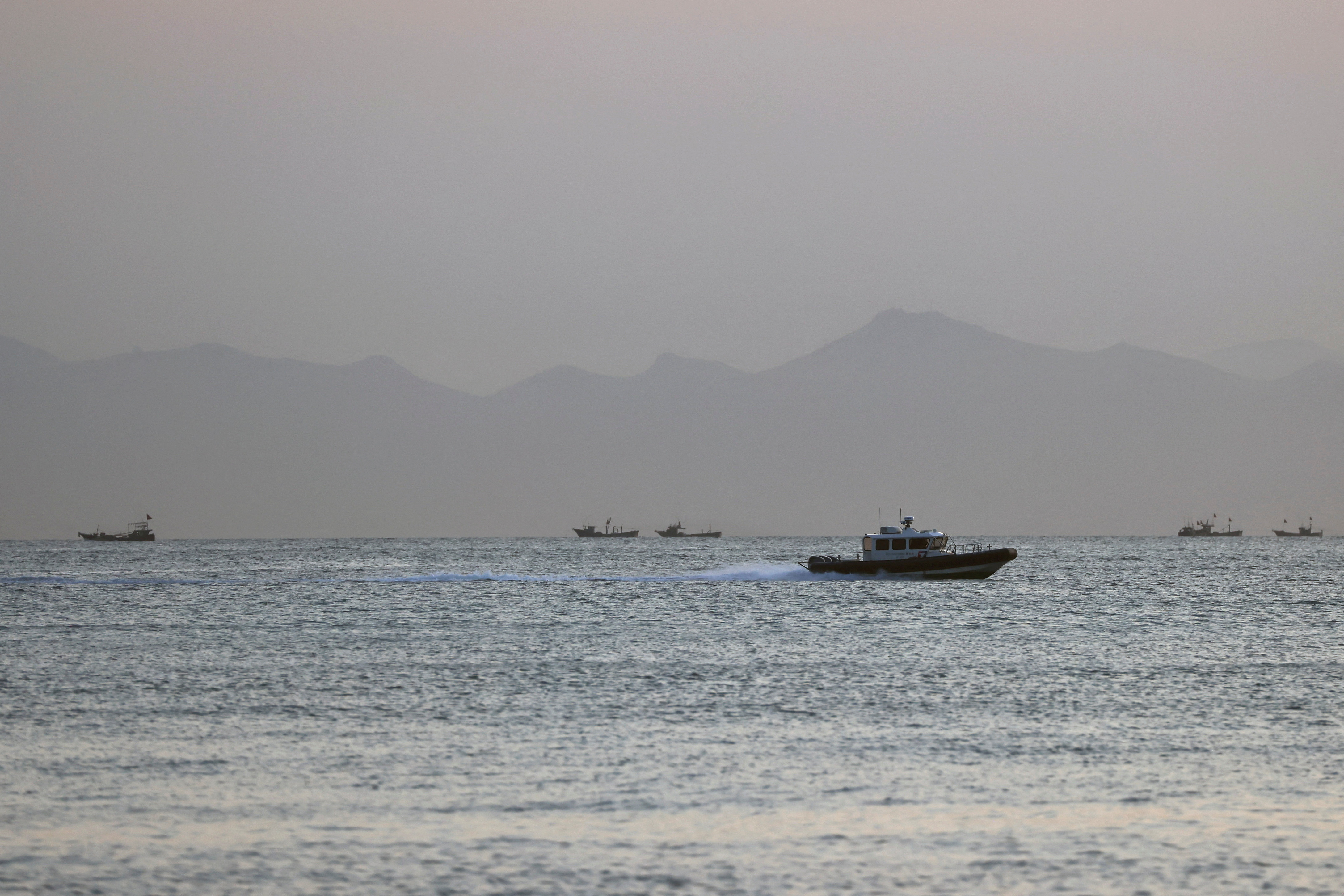
China is trying to establish a new “status quo” around Taiwan as it seeks to isolate the self-ruled democracy, Taiwanese Foreign Minister Joseph Wu has said.
Wu told reporters on Friday that China is trying to rewrite long-held conventions around Taiwan’s de-facto territorial space.
China claims Taiwan as part of its territory in a conflict dating back to the end of the Chinese Civil War in 1949, but for decades the two sides have maintained a largely peaceful impasse – with some exceptions.
Recently, however, China has begun to treat the 180-kilometre-wide (112-mile) Taiwan Strait dividing Taiwan from mainland Asia as its domestic waters even though it is an international waterway, Wu said.
China has also begun to push back against the unofficial practice of dividing the Strait in half with a “median line”, which was devised by US Air Force General Benjamin O Davis Jr in 1955, after the First Strait Crisis when the two sides fought over offshore islands.
Since the start of the month, Chinese warships and military aircraft have approached the median line as part of a large-scale protest against US Speaker of the House Nancy Pelosi’s visit to Taiwan in early August.
China staged enormous military exercises and fired missiles over Taiwan between August 4 and 7, and since those drills concluded continues to deploy aircraft and warships in Taiwan’s direction daily.
Slightly less than half of the 620 aircraft sent by China towards Taiwan between August 5 and 25 crossed the median line, according to data from Taiwan’s Ministry of National Defence.
Yen-Chi Hsu, an assistant research fellow at the Taiwanese think-tank the Council on Strategic and Wargaming Studies, says contrary to popular belief, Beijing does not recognise the median line as a “legal border” and its airforce has been testing the median since 1998.
Until recently this was not something that Taiwan generally acknowledged, according to Yen.
“Now, because of the increased threat from China, Taiwan’s government has decided to release some of the PLA’s movements to let the public know that the threat has not gone away,” Yen told Al Jazeera.
Reality on the ground
Wu told reporters that Taiwan was not the only government affected by the military exercises, as the waters and airspace around Taiwan are also important shipping and commercial aircraft routes.
He also said missiles fired over Taiwan during the military exercise landed near Japan, posing a threat to regional security.
Wu said that despite Beijing’s claims, Taiwan has a de-facto independent government of “publicly and democratically” elected leaders with separate military and diplomatic institutions.
“The PRC government has never for any single day had jurisdiction over Taiwan,” he told reporters, using an abbreviation for the People’s Republic of China.
“No matter how much China is trying to claim Taiwan is part of the PRC, it does not align with the reality on the ground.”
Despite the show of force by China, foreign delegations have continued to visit Taiwan this month including US Republican Senator Marsha Blackburn, who arrived on Thursday night, US Democratic Senator Ed Markey, and a group of Japanese legislators.
Former Secretary of State Mike Pompeo has also announced he will make a second trip to Taiwan this year in September.
Wu said these visits, while largely symbolic, were an important show of support for Taiwan.
“Very often symbolism can be substantive,” he said. “If China is trying to cut us off from international support, for all the Taiwanese people, seeing the international support is very important, and this is a way to keep us going.”







